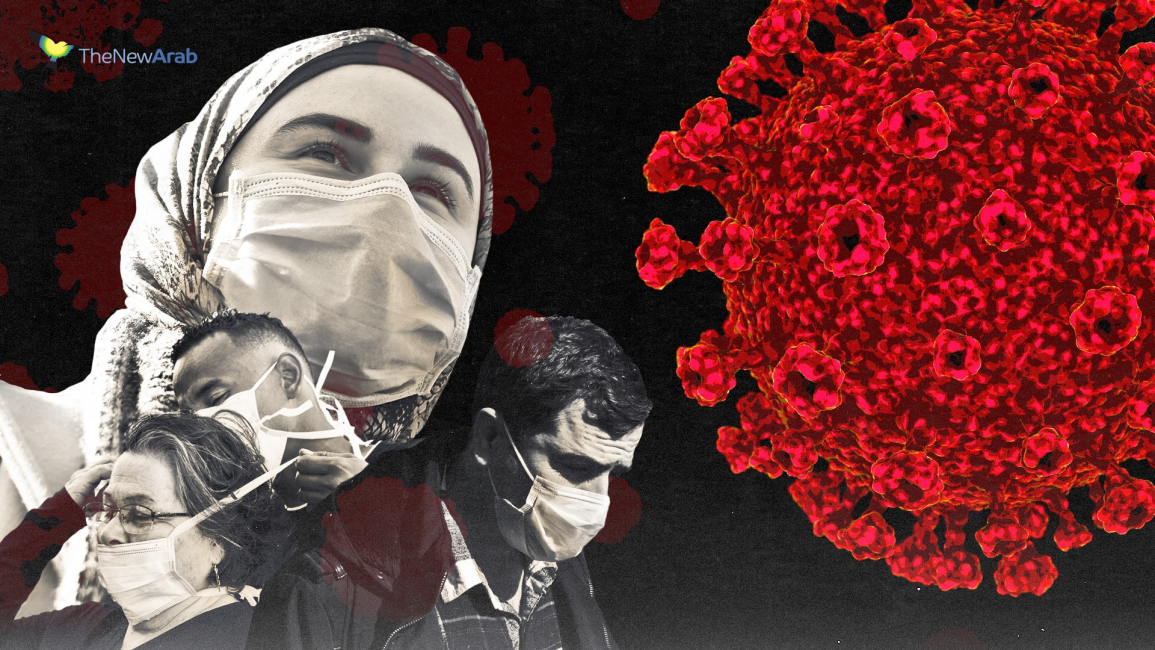The Middle East at war with coronavirus: Top stories from 14 May
Here are five stories you need to know about the coronavirus pandemic and how it is affecting the Middle East on 14 May:
1. Iran reopens mosques for holy Ramadan nights despite Covid-19
In spite of their fears over the coronavirus, hundreds of pious Iranians took advantage of the temporary opening of mosques Wednesday to pray at one of the holiest times of year.
The mask-clad faithful for the most part adhered to social distancing guidelines as they sat in designated areas of Reihanat Al-Hussein mosque, in west Tehran.
Iran reopened the mosques for two hours from midnight for Laylat Al-Qadr, a high point during the fasting month of Ramadan that marks when the Qur'an was revealed to Prophet Mohammed.
The Islamic republic shut its mosques and shrines in March as part of its efforts to contain the Middle East's deadliest outbreak of Covid-19.
The first cases emerged in the Shia holy city of Qom on February 19 and has gone on to claim nearly 6,800 lives in Iran.
Read more here
A slickly produced video releaed last month by the office of Egyptian President Abdel Fattah al-Sisi showed crates of coronavirus medical supplies - stamped in English and Arabic with the words "from the Egyptian people to the American people" - being loaded onto a military cargo plane.
The dramatically scored video was Egypt's latest attempt to project soft power globally by sending medical aid to countries that have included China, Italy, Sudan and the United Kingdom.
But analysts described these gestures of political goodwill as tokenistic at a time when Egypt's own healthcare system is overstretched.
3. Seven UN agencies urge Libya cease-fire to contain coronavirus
Seven UN agencies on Wednesday called for a cease-fire in Libya to try to stop the spread of the coronavirus, saying the international community "must not turn a blind eye to the conflict" in the North African nation where 64 cases of Covid-19 have been confirmed.
In a joint statement, the heads of the agencies said the confirmed cases include three deaths and have been reported in different parts of Libya, showing that "the risk of further escalation of the outbreak is very high."
They said the conflict is having a "catastrophic effect on civilians, including migrants and refugees, across the country" and backed UN Secretary-General Antonio Guterres' call for a global cease-fire to tackle the pandemic, which is especially needed now in Libya.
Read more here
|
4. Lebanon starts talks with IMF to rescue economy
Lebanon held talks with the International Monetary Fund to secure financial aid desperately needed to save a crumbling economy, both sides said.
Lebanon is battling its worst economic crisis since the 1975-1990 civil war, now compounded by a coronavirus lockdown.
The Mediterranean country, which was hit last autumn by unprecedented protests, asked the IMF for financial assistance on May 1 after laying out a much-awaited financial rescue plan.
"The Lebanese government and the IMF wrapped up their first stage of discussions towards trying to reach a deal to set the Lebanese economy back on the right path," Finance Minister Ghazi Wazni said.
"We are satisfied with the atmosphere of these initial talks and hope the next ones will be just as constructive," he said of the video-conference meeting.
Read more here5. Sub-Saharan migrants in Morocco trapped by virus and poverty
At least 20,000, the vast majority from sub-Saharan Africa, are trapped "in a humanitarian emergency", said sociologist Mehdi Alioua of the anti-racism foreigners' support group GADEM.
Many of them work in the informal sector, which accounts for more than 20 percent of Morocco's economy, and tend to live precariously, hand to mouth, even in normal times.
"The misery is across the board," said Ousmane Ba, head of the Collective of sub-Saharan Communities in Morocco.
"Those who worked as vendors are under lockdown without financial resources and the situation is getting worse for illegal migrants living in camps."
Read more here



